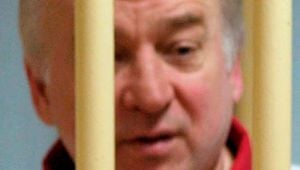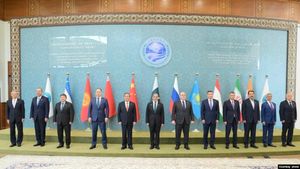Calls for justice and transparency have intensified recently within the Indian legal framework, focusing on prominent cases involving religious underpinnings and high-profile detentions. This narrative intertwines the perspectives on the role of religion in judicial processes, criticism of judicial behaviors, and pressing concerns about human rights.
On October 20, 2024, Chief Justice of India D.Y. Chandrachud shared intriguing reflections at an event in Maharashtra, stating, "very often, we have cases to adjudicate, but we don’t arrive at a solution... Believe me, if you have faith, God will always find a way." His comments, especially relating to the contentious Ram Janmabhoomi-Babri Masjid dispute, triggered significant discourse about the influence of religious beliefs on judicial outcomes. Critics argue his invocation of divine assistance threatens the secular foundation of justice established by the Indian Constitution.
Justice Chandrachud's remarks seem to suggest divine intervention as part of judicial reasoning—a position many legal experts condemn. Critics underline the fundamental principle stated within Articles 124(6) and 219 of the Indian Constitution, which obligates judges to uphold justice without fear or favor. Any reliance on divine justice, according to them, detracts from the commitment to rational, evidence-based legal processes.
Adding to this complexity, the recent plight of Indian-Swiss businesswoman, allegedly embroiled in legal troubles over allegations of kidnapping and intent to murder, has sparked international concern about human rights and due process standards. After weeks of detention and severe conditions, she was granted bail, yet remains subject to charges lacking substantial evidence. The Oswal family, known for their significant investments and philanthropic contributions to Uganda's economy, voiced their outrage, describing their relative's treatment as marked by abuse of power.
The Ugandan court case reflects broader issues around justice, especially for individuals lacking the means to navigate the legal system effectively. This situation has brought to light questions about how judicial processes can be influenced by wealth and power, paralleling concerns voiced by advocates for equitable treatment outlined following Justice Chandrachud's comments.
The case unfolded with Menaria, the former employee at the center of this legal storm, affirming through notarized statements he was never kidnapped—a glaring contradiction to the accusations against his employers. This raises pressing questions about the integrity of legal processes, particularly the necessity for transparency and accountability.
The intersection of judicial practice and societal power dynamics raises alarm among advocates for justice. Several experts argue the recent judicial discourse and cases showcase disturbing trends where principles of fairness seem compromised, potentially endangering the rule of law.
Justice Chandrachud's religious confessions hint at broader concerns related to the emergence of non-secular ideals within Indian judicial processes. Such theocratic justifications could be seen as threats to the Indian Constitution's secular ethos, impacting the broader societal belief systems and possibly fostering majoritarian ideologies rooted within Hindutva politics. These ideologies push against the grain of India's commitment to unity through diversity.
Following these recent events, voices within India and abroad have fervently called for protecting the sanctity of law, emphasizing the need for judicial accountability devoid of external religious or cultural pressures. This insistence echoes throughout various civil society organizations advocating for policy reforms ensuring the protection of individual rights.
Justice Chandrachud himself once noted the significance of scientific temper and humanism as foundational principles of constitutional rights under Article 51A. The question remains whether he embodies these ideals or succumbs to pressures exerted by prevailing sociopolitical currents influencing legal interpretations.
Meanwhile, the repercussions of the Ugandan legal scenario on public perception may complicate investment climates—a reality not lost on economic policy advocates emphasizing the need for justice to restore trust. The Oswal family's public statements reflect this urgency, shedding light on their commitment to justice and their refusal to yield under perceived injustices. They continue to seek transparency not only for themselves but for all those entangled within Uganda’s complex legal frameworks.
On the international stage, watchdog organizations echo similar calls for reform, pressing Ugandan authorities to uphold principles fundamental to justice and human dignity. Stakeholders argue the consistent undercurrents of due process violations threaten not only individual freedoms but societal integrity as well.
The rising complexity of these intertwined cases reflects not merely individual grievances but broader societal challenges—a palpable reminder of the persistent struggle for justice, equity, and transparency within respective judicial frameworks. The integration of faith, power, and socio-political influence within these discussions unveils the multifaceted layers of justice, calling for unwavering vigilance from all sectors of society to uphold the rule of law.
Going forward, the intertwining narratives of Justice Chandrachud’s judicial musings and the Ugandan legal controversies necessitate strategic pathways toward fostering justice—ones resilient against undue influence tethering them to non-secular ideologies and oppressive behaviors. Advocates insist on the urgent need for ensuring these values prevail, horticulturing justice through transparency as the indisputable bedrock of civil society. Allowing for these structures to flourish and thrive will determine the integrity and future of justice within both Indian and Ugandan landscapes.



